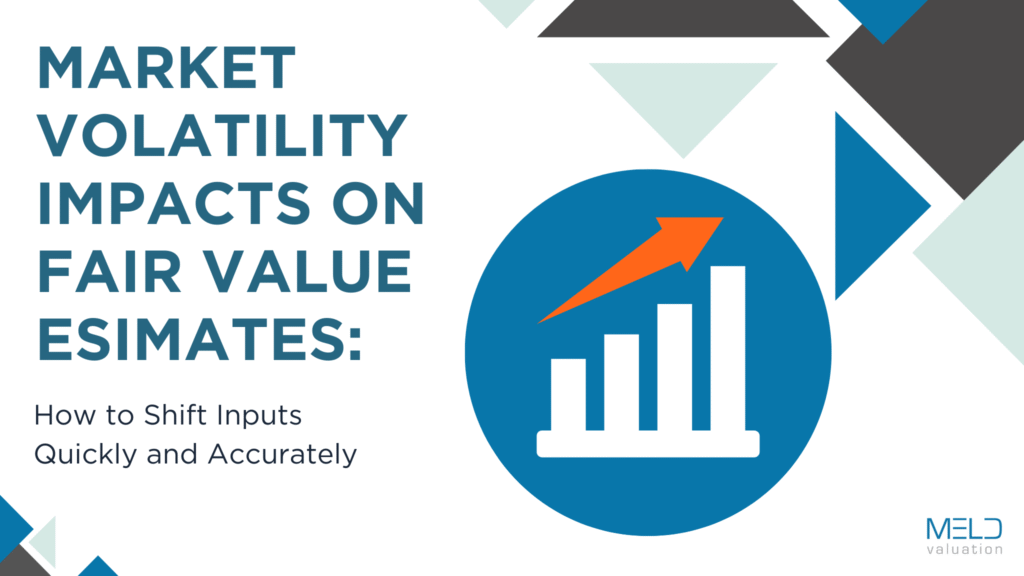

For market volatility, fair value becomes a moving target. For CFOs and fund managers, the challenge is adjusting quickly enough to reflect real market conditions, without overreacting or introducing bias.
What This Blog Covers:
- How changing comps affect discount rates and exit assumptions
- What to do when prior transaction data is stale
- Adjusting for macro-level risk in portfolio company valuations
- Documenting valuation rationale in volatile environments
The Impact of Market Volatility on Fair Value Estimates
When markets shift, so should your inputs. But many teams either overreact or ignore volatility entirely.
Here’s how to strike the right balance.
Revisit Your Comps and Multiples
If your last valuation relied on public comps, they may no longer be valid. Re-calibrate based on updated multiples or comparables.
Adjust Discount Rates Thoughtfully
Volatile markets may warrant higher risk premiums. But increases should be tied to market signals, not guesswork.
Address Stale Transactions
If you haven’t had a financing round in over 12 months, document why past transactions still apply—or model with multiple exit paths.
Document Your Rationale
Don’t just update numbers, update your memo narratives too. Why were changes made? What alternatives were considered?
Get Help Re-Calibrating Your Inputs
Navigating volatile markets while adhering to compliant fair value calculations can be challenging for your audit team adjust quickly. Ensure your business reflects real market conditions accurately.
Let’s talk
Schedule an intro call to learn about why MeldVal is important for your business. Or have any questions? We’re here to help.
Contact us

